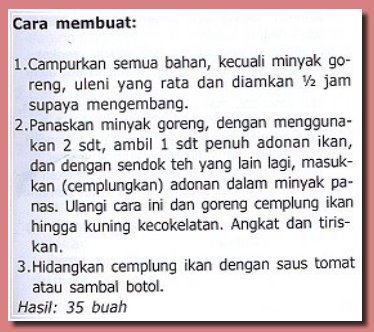10 ways to build your 2-year-old's self-esteem
Nurturing your child's self-esteem may seem like a hefty responsibility. After all, a feeling of self-worth lays the foundation for your child's future, as she sets out to try new things on her own. "Self-esteem comes from having a sense of belonging, believing that we're capable, and knowing our contributions are valued and worthwhile," says California family therapist Jane Nelsen, co-author of the Positive Discipline series.
"As any parent knows, self-esteem is a fleeting experience," says Nelsen. "Sometimes we feel good about ourselves and sometimes we don't. What we are really trying to teach our kids are life skills like resiliency." Your goal as a parent is to ensure that your child develops pride and self-respect — in herself and in her cultural roots — as well as faith in her ability to handle life's challenges. (For a 2-year-old that may mean building a block castle that doesn't topple or rebuilding it when it does). Here are ten simple strategies to help boost your child's self-esteem:
A child's self-esteem flourishes with the kind of no-strings-attached devotion that says, "I love you, no matter who you are or what you do." Your child benefits the most when you accept her for who she is regardless of her strengths, difficulties, temperament, or abilities. So lavish her with love. Give her plenty of cuddles and kisses. And don't forget to tell her how much you love her. When you do have to correct your child, make it clear that it's her behavior — not her — that's unacceptable. Instead of saying, "You're a naughty girl! Why can't you be good?" say, "Pushing Olivia isn't nice. It can hurt. Please don't push."
Carve out time to give your child your undivided attention. That does wonders for your child's self-worth because it sends the message that you think she's important and valuable. It doesn't have to take a lot of time; it just means taking a moment to stop flicking through the mail if she's trying to talk with you or turning off the TV long enough to answer a question. Make eye contact, so it's clear that you're really listening to what she's saying. When you're strapped for time, let your child know it without ignoring her needs. Say, "Tell me all about the picture you drew, and then when you're finished, I'll need to make our dinner."
Establish a few reasonable rules. For instance, if you tell your child she has to eat her snack in the kitchen, don't let her wander around the family room with her crackers and fruit the next day. Knowing that certain family rules are set in stone will help her feel more secure. It may take constant repetition on your part, but she'll start to live by your expectations soon enough. Just be clear and consistent and show her that you trust her and expect her to do the right thing.
A good rule of thumb: Let your child choose between two possibilities, since at this age too many options can be overwhelming. For instance, ask her whether she wants to wear her polka-dot dress or the striped one, or if she wants to paint or draw, or whether she wants oatmeal or cold cereal for breakfast. She'll gain confidence with each opportunity to make a decision. Letting her know that you have faith in her judgment increases your child's sense of self-worth.
Encourage your child to explore something new, such as trying a different food, finding a best pal, or going down the slide. Though there's always the possibility of failure, without risk there's little opportunity for success. So let your child experiment safely, and resist the urge to intervene. For instance, try not to "rescue" her if she's showing mild frustration at figuring out a new toy. Even jumping in to say, "I'll do it" can foster dependence and diminish your child's confidence. You'll build her self-esteem by balancing your need to protect her with her need to tackle new tasks.
The flip side, of course, of having choices and taking risks is that sometimes your child is bound to make mistakes. These are valuable lessons for your child's confidence. So go ahead and let her wear the snowsuit she insists on wearing even if it's balmy outside (just stash more appropriate clothing in your backpack). When she starts complaining that she's too hot, stifle your urge to say, "I told you so." Just whip out her favorite shorts and T-shirt and say something like, "How about wearing this since it's so warm?" That way her self-esteem won't sag and she'll understand that it's okay to make mistakes sometimes. When you goof up yourself, admit it, says Daniel Meier, assistant professor of elementary education at San Francisco State University. Acknowledging and recovering from your mistakes sends a powerful message to your child — it makes it easier for your child to accept her own shortcomings.
Buy clothes that are a cinch to put on and pull off, get a stool so she can wash her own hands and brush her teeth at the sink, and find a place for her toys and books that is within her reach. By giving your 2-year-old the resources to take care of her own needs, you'll help foster independence and pride in her ability to do things for herself.
It's sometimes too easy to tally up all the things a child does wrong, but everyone responds well to encouragement, so make an effort to acknowledge the good things your child does every day within her earshot. For instance, tell her dad, "Nina picked up all her toys today." She'll bask in the glow of your praise and her dad's heartening response. And be specific. Instead of saying "Good job," say, "Thank you for waiting so patiently in line." This will enhance her sense of accomplishment and self-worth and let her know exactly what she did right.
If your child needs to talk, stop and listen to what she has to say. She needs to know that her thoughts, feelings, desires, and opinions matter. Help her get comfortable with her emotions by labeling them. Say, "I know you're sad because we have to say bye-bye to the carousel." By accepting her emotions without judgment, you validate her feelings and show that you value what she has to say. If you share your own feelings ("I'm excited about going to the zoo"), she'll gain confidence in expressing her own.
Every child needs the kind of support from her loved ones that signals, "I believe in you. I see you trying. Keep going!" Encouragement means acknowledging progress — not just rewarding achievement. It means thanking your child for putting her books away, even if she missed some under her bed. It means smiling in support as she struggles to use her fork, in spite of the trail of food under her chair. And it means giving a hug for an attempt at singing the "ABC" song, even though she skipped a few letters.
There's a difference between praise and encouragement. One rewards the task while the other rewards the person ("You did it!" rather than "I'm proud of you!"). Praise can make a child feel that she's only "good" if she does something perfectly. Encouragement, on the other hand, acknowledges the effort. "Tell me about your drawing. I see that you like purple" is more helpful than saying, "That's the most beautiful picture I've ever seen." Too much praise can sap self-esteem because it can create pressure to perform and set up a continual need for approval from others. So dole out the praise judiciously and offer encouragement liberally; it will help your child grow up to feel good about herself.
Sumber: ParentCenter
Posted by Sheila


